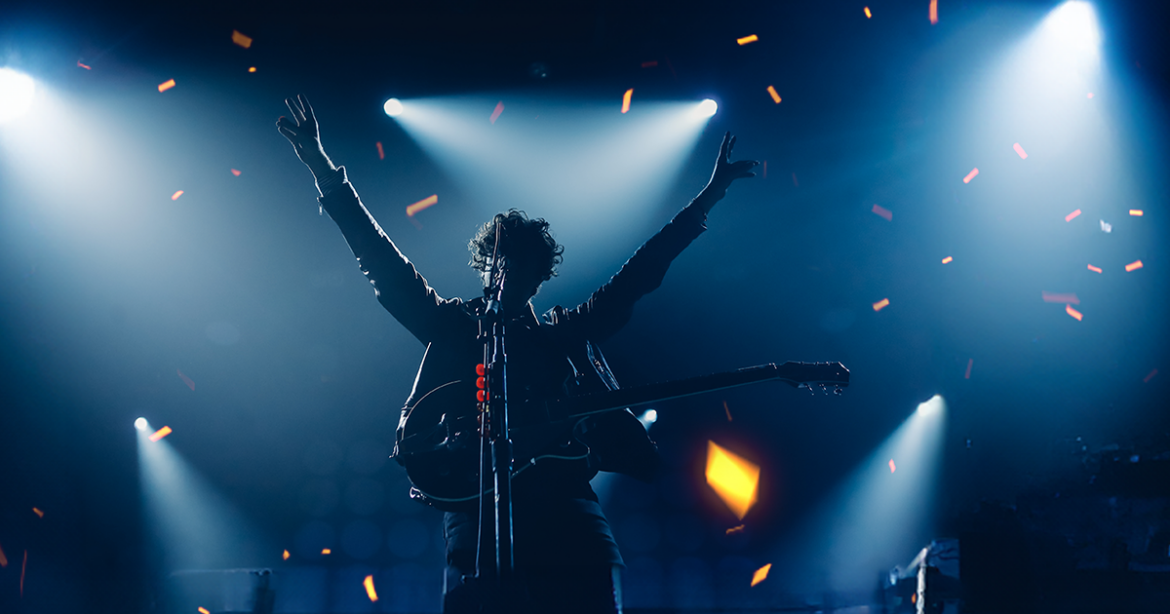Top 10 Moments in Eurovision History
The Eurovision Song Contest is an annual tradition in the world of music, which draws avid fans, and a few haters, but not much in-between. But love it or hate it, this show has engaged audiences around Europe for nearly seven decades.
1. ABBA’s win for Sweden with “Waterloo” in 1974
Abba attempted to represent Sweden in 1973, but were not chosen at the national selection. However, the now iconic quartet were successful the following year when in 1974 they were not only selected to represent Sweden, but they also won. ABBA’s performance of “Waterloo’’ at The Eurovision Song Contest in Brighton, England, gave Sweden its first ever win. Appearing on stage dressed in flamboyant costumes and delivering a captivating performance, this performance catapulted ABBA’s career globally, and showcased Eurovision’s potential to launch international music careers.
To date, ABBA’s performance is still considered by most people as one of the greatest Eurovision entries of all time. In fact, during the contest’s 50th anniversary celebration in 2005, “Waterloo” was voted the best Eurovision song ever. This historic win for Sweden continues to influence the Eurovision contestants, all hoping to replicate ABBA’s superstardom.
2. Conchita Wurst’s 2014 Win for Representation
In 2014, the Eurovision Song Contest witnessed a very special performance, with the act’s appearance as much of a discussion point as the song. Conchita Wurst is the drag name of Austrian performer Thomas Neuwirth. She performed the song “Rise Like a Phoenix,” which captivated audiences. Her talent and striking appearance were a symbol of acceptance and artistic freedom. The singer had a beard, but was very clear that she was not a trans woman. Conchita’s appearance was all part of her performance. Still, she stated she had worn skirts as a child at nursery school, and that her family supported her individuality. Winning the Eurovision symbolised a significant stride for LGBTQ+ representation in the entertainment industry.
3. Lordi’s 2006 Heavy Metal Revolution
Finland won with their entry in 2006. However, it was a performance that shocked most. Historically the entries for the Eurovision are dominated by pop, soft rock and ballads. However, performing in Athens, Greece, Lordi took to the stage dressed in monster costumes and performed their very heavy metal anthem “Hard Rock Hallelujah.” It was a performance that thrilled fans around the world, with the energy of the performance described by many as electrifying. Lordi may have been an unexpected winner, but the band definitely showcased that there was a space for heavy metal within the contest. They achieved a record-breaking score of 292 points, paving the way for diverse musical styles in future competitions
4. Dana International’s Historic Milestone (1998)
Another Eurovision milestone was achieved in 1998 when the first openly transgender artist performed and won for Israel. Dana International sang “Diva”, and following on from her performance, was catapulted into a star overnight. Dana normalised diversity for viewers and encouraged us all to embrace our own identities.
5. The Epic 1996 Voting Showdown between the UK and Ireland
In 1996 the Eurovision Song Contest is famously remembered for a voting battle between the United Kingdom and Ireland. Gina G’s upbeat track, “Ooh Aah… Just a Little Bit” represented the UK and it was a favourite with fans. However, it was Ireland’s Eimear Quinn who ultimately won the contest with her beautiful ballad “The Voice.”
This was Ireland’s fourth win in just five years, with the tension palpable between the UK and Ireland on the night. Despite Gina G losing, she went on to have continued success in the industry, as did Eimear Quinn.
6. Salvador Sobral’s Touching Win in 2017
Portugal celebrated its first win in 53 years at the Eurovision Song Contest in 2017. The artist Salvador Sobral sang “Amar Pelos Dois.” It was a moving performance that was stripped bare, unlike the flashy performances the contest is known for. Salvador performed despite having a serious heart condition and was waiting for a transplant to survive. He sang with genuine emotion and sincerity and amassed a remarkable 758 points, a record for the highest score at the time. Following his victory at the Eurovision he went on to have a successful heart transplant operation.
7. Verka Serduchka’s Show-Stopping Performance (2007)
In 2007 in Helsinki, Ukraine was represented by drag act Verka Serduchka. She took to the stage with her high-energy performance of Dancing Lasha Tumbai. Verka is the drag persona of Andriy Myhailovych, an actor and comedian. Verka performed dressed in a glittering silver costume and delivered an over-the-top dramatic spectacle. She was theatrical and funny, the audiences loved her. Though she finished in second place, her performance became an instant classic, embraced by fans across Europe. Verka has shown that second place can still bring success as she has sold 600,000 records and has even appeared in films since.
8. The Melodrama of the Eurovision Voting Process
The voting process at Eurovision is all part of the evening’s entertainment. Countries with alliances vote for each other, and political and tactical voting also takes place. It can become a drama-filled reality show as the voting takes place. However, this is why the majority of viewers tune in!
As the suspense builds with each point announcement, you never know whether you’ll be leaping for joy or shouting at your television in outrage. The evening can be like a rollercoaster ride, but it certainly creates some of Eurovision’s historic moments.
In 2018, Cyprus was expected to win as the votes started to come it. However, Israel’s performer Netta, who has earlier strutted onto the stage and belted out her anthem “Toy”, overtook the Cypriot act in points and went on to win. As always, a glittery outfit and a catchy song were very popular at the contest.
9. Loreen’s Spellbinding 2012 Victory
When Sweden’s act Loreen took to the Eurovision stage in 2012, she delivered a stunning performance of her song “Euphoria”. Both her vocals and choreography were outstanding, and Loreen’s victory marked a key moment in Eurovision history, as “Euphoria” quickly became a massive hit across various music charts. Loreen then represented Sweden again in 2023 in Liverpool and won again with her song “Tattoo”. Loreen is the first woman to win the competition twice. Loreen has a successful career as a singer songwriter performing at concerts across Europe.
10. The Rise of the Balkan Sound
Balkan music has become more popular and proven to influence artists throughout the Eurovision Song Contest. Performers from the Balkans have managed to use traditional folk music elements and merge them with cutting-edge sounds. These performances have proven very popular. A good example of this fusion is Marija Šerifović, whose ballad “Molitva” earned Serbia the crown in 2007 but also showcased the captivating melodies that define Balkan music. She fused traditional sounds with European music. To date, Marija is one of the most popular singers in the Balkans and enjoys continued success with her modern take on folk music.
This year, the Eurovision Song Contest is being held in Basel, Switzerland, with the final on May 17. So, gear up for another round of dazzling performances and unexpected wardrobe choices! Keep in mind, though, that the Eurovision Song Contest is not merely a competition of catchy songs and questionable dance moves. It’s a colourful celebration of creativity and diversity.
Who knows if a shock act will steal the show this year, if political alliances will shadow the event, or if a new mega star will emerge from the contest and have huge worldwide success like ABBA. Whether you’re a die-hard fan with glitter in your hair or someone just tuning in for the epic costumes and nail-biting voting drama, Eurovision promises to always deliver unforgettable moments.
So, grab your popcorn, invite your friends and family round, and prepare for an evening of music, laughter, and possibly some classic “what were they thinking?” moments that will keep us talking until next year’s contest.
Last Updated: 16.04.2025




